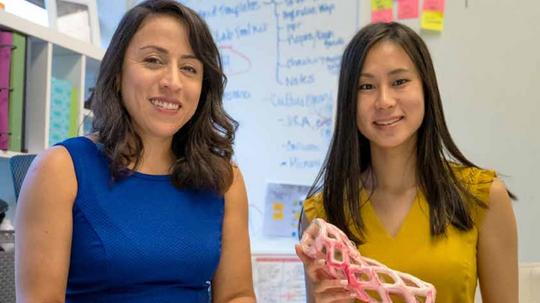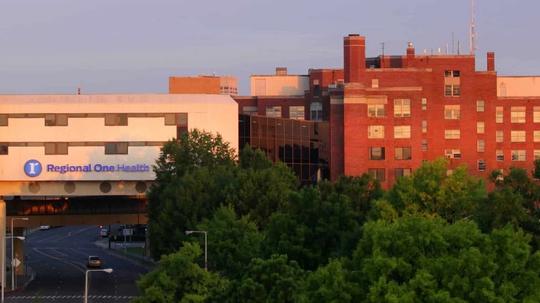
Innovation begins with the spark of a new idea, but it takes a well-planned, step-by-step process to go from spark to reality.
Regional One Health’s Center for Innovation is playing an essential role in that journey by filling a gap in Memphis’ thriving health care innovation ecosystem.
Center for Innovation Director Alejandra Alvarez developed the Healthcare Startup Access Incubator to give innovators a chance to validate products and services in the real-world setting of a busy urban medical center.
“Our Access Incubator pairs entrepreneurs with Regional One Health providers and patients who can use their product or service in a real-world setting to help them evaluate whether it provides more value and better experiences,” she said. “That in turn informs their design, their go-to-market strategy, even something as simple as how they deliver training.”
Meticulous validation is a critical step in the innovation process, especially in an industry where patients’ health is at stake, but it can be hard to accomplish.
“In the health care startup world, there’s a lot of work behind getting innovators started but not a lot that focuses on promoting their success,” Alvarez explained.
In Memphis and the Mid-South, startups found a welcoming environment due to accelerators like ZeroTo510, which helps innovators navigate the Food and Drug Administration clearance process, as well as large, established firms that can partner with newcomers once they have a marketable product.
However, there wasn’t a lot of support between those two points. Regional One Health leaders realized the Center for Innovation could thrive in that space.
Empowering “disruptive health care innovation”
The innovation center was established with the mission of “inspiring and cultivating disruptive health care innovation” in a manner that benefits the patient and the health system.

As Alvarez developed partnerships within the Access Incubator, she quickly started seeing the tangible benefits for entrepreneurs and Regional One Health.
“The startups are finding a place to validate their products and interact with potential customers,” she said. “We take a customized approach, and we’re very specific about the access they’re getting. It’s based on exactly which questions they need to answer.”
Working in a real-world clinical environment, entrepreneurs can get priceless feedback from providers and patients. Alvarez said that helps them with everything from improving their products to changing how they train providers to use them.
So far, the innovation center has helped evaluate an orthotic device for healing bone fractures, a Manuka honey-based wound care product, technology that measures biothermal energy to detect possible breast disease, and products to assist patients with feeding tubes.
Regional One Health and its patients are reaping the rewards of being on the inside track to the future of medicine. “It exposes us to new developments and allows us to give our community access to the latest advances in health care,” Alvarez said.
That in turn nurtures an innovation mindset among employees, who are not only embracing the chance to use new concepts but developing their own solutions and ideas in partnership with the Center for Innovation. “It’s bringing about a cultural transformation among our employees,” Alvarez said. “It inspires them, and they’re picking up the challenge.”
A plus for patient care near and far
The impact even goes beyond individual companies or one health care system.
New products and services developed with the help of the Center for Innovation can be scaled to benefit patients everywhere, and in doing so position Memphis as a major player in the world of health care innovation.
“Memphis has been doing a lot of work in creating a startup support network, and it’s evident in all the different entities that are coming here,” Alvarez said. “By providing a place to validate and refine ideas, Regional One Health is helping create a complete ecosystem, so we’re not only attracting companies as startups, we’re giving them reason to stay.”
Already, the Access Incubator has worked with companies from Chicago, New York City and Florida, along with one Memphis-based startup.

Now, Alvarez is excited to form more partnerships, including the Access Incubator’s first project linked to the administrative side of the hospital.
“We’re doing work that benefits startups, patients, the health care system and our community. We have an opportunity to influence the products and services that will eventually change health care for the better, and we’re excited to be part of an ecosystem that will have a lasting positive impact on patient health,” she said.
Regional One Health provides accessible, efficient, quality care for the Mid-South. Its main campus in downtown Memphis features comprehensive medical services and centers of excellence in trauma, burn, NICU and high-risk obstetrics. Its east campus provides specialty care and other outpatient services, and the system offers six primary care offices.
